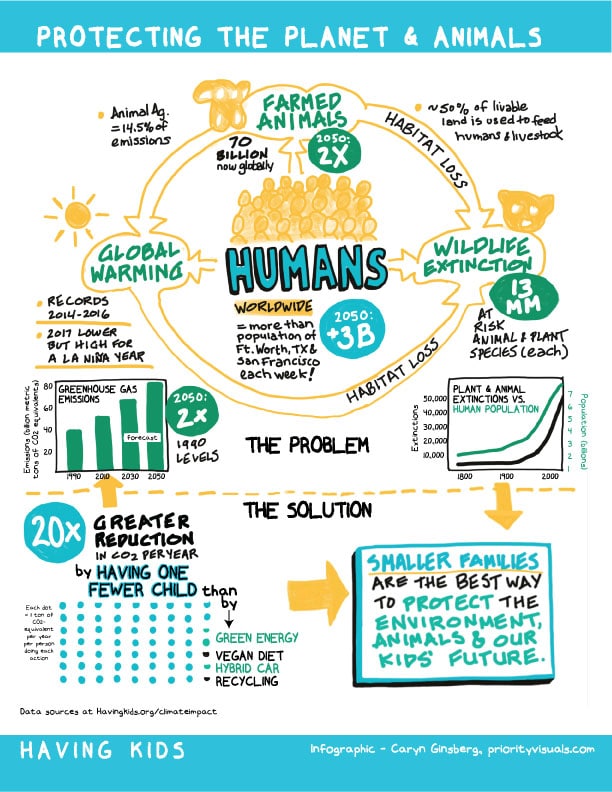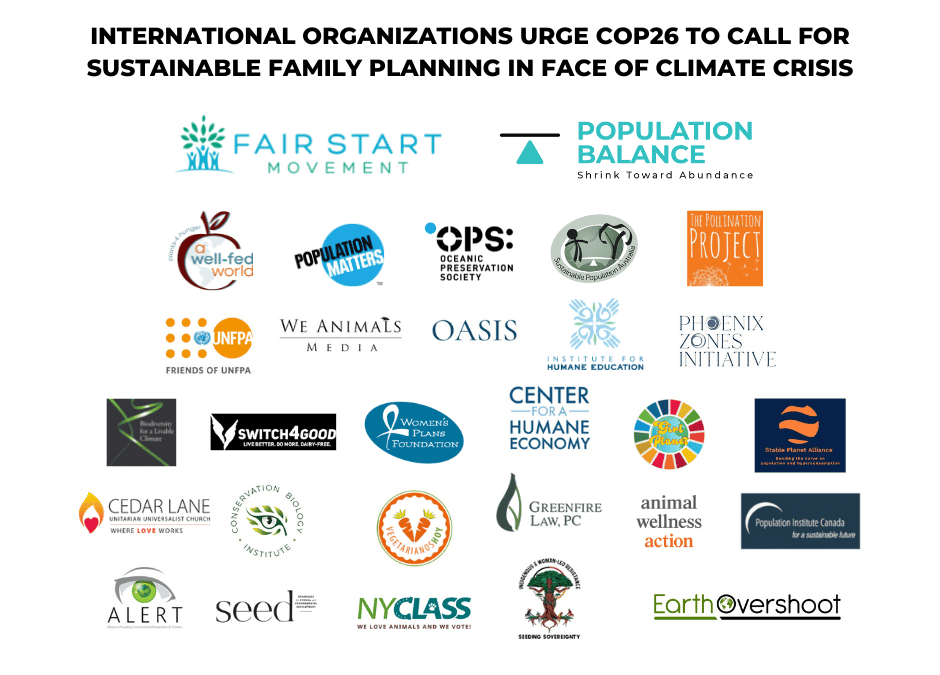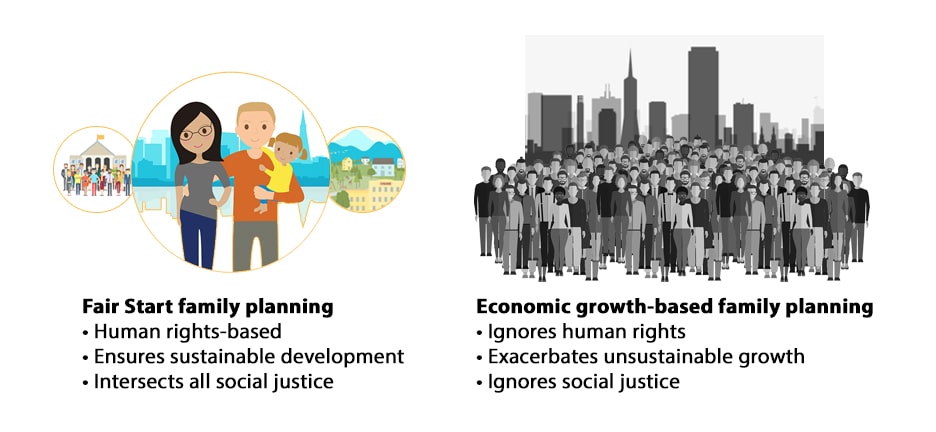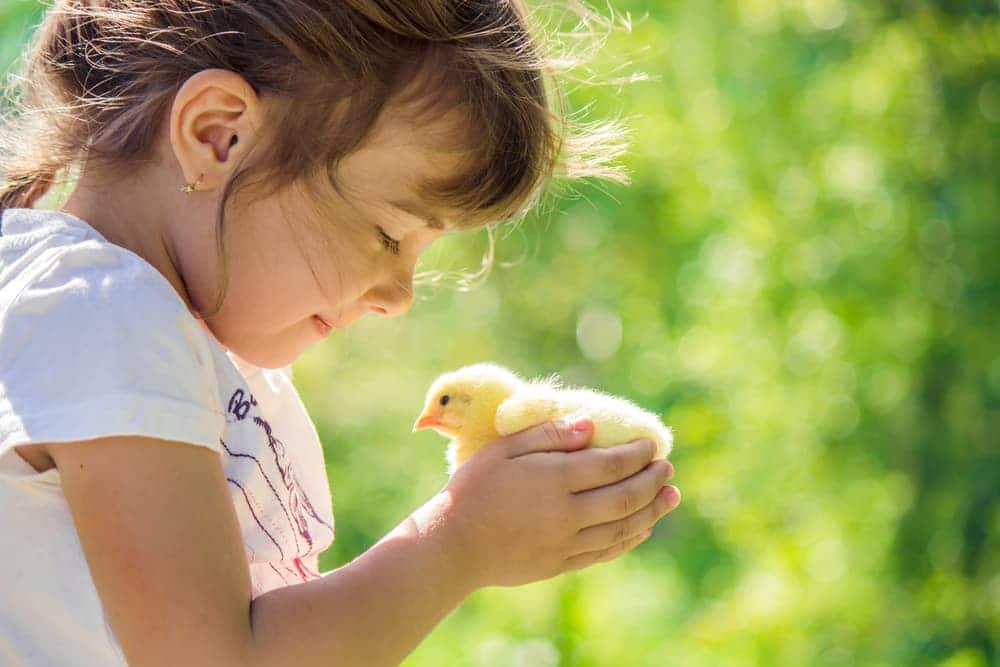If animal suffering, death and extinction are any measure, the animal rights movement has largely failed.
In almost every category, from increased demand for animal products, to the extinction of wildlife, animals are losing. And that’s not even accounting for what the climate crisis will do to animals as it escalates.
What went wrong and how do we reverse course? In short, as a Yale Climate Connections piece recently showed we allowed the Anthropocene to unfold, unchecked, rather than adhering to ecocentric systems. Here is one effective move to change the law to make it work for animals: Reform family policies to promote delayed parenting, birth equity, and sustainable families for all as a matter of fundamental human rights and obligations.

Let’s be blunt. This move involves redistributing wealth from the top of the wealth pyramid to encourage people to wait to have kids or forgo doing so entirely. Given the beneficial impact on future generations this would have, it’s not just a policy suggestion – it is the practice of the first and overriding human right: The right to a Fair Start in life. It’s a move one influential author called child-centric family planning in his Newsweek piece. It’s a move a Nobel Laureate recently implied would be needed to end the Ponzi scheme of endless growth.
Groups like the Fair Start Movement have had success shifting the norms in the right direction. This includes assembling a large coalition of groups now pushing for universal change at the United Nations.

It also involves several changes to more traditional law, including 1) reforming humane education law to require the demonstrable development of empathy / prosocial behavior in children, 2) the prioritization of corporate prosecutions/injunctions in animal cruelty law via specific legislative and funding reforms, and 3) local personhood ordinances that mesh with comparable rights of nature laws.
The right to an ecosocial Fair Start represents a unified version of animal personhood – one that aligns human and nonhuman personhood into one functional concept rather than making them oppositional. For example, populations of humans with much higher investments in each child mean more meaningful roles for each person in their democracy, and more room for animals – the height of nonhuman liberation.
Fact: An ecocentric and biodiverse standard for environmentalism would have also prevented the horrific impacts of the climate crisis on motherhood, which fall disproportionately because of inherited inequities.

Without this change refences to animal law are probably misnomers, and misleading . Animal law, minus changing the people we are becoming, would be missing the key ingredient: Us.
We can’t call something animal law if it does not orient from restoring the nonhuman world – their autonomy, and systems that don’t do that may not even produce law at all – truly obligatory norms – because they do not use a baseline that accounts for how people meaningfully participate in those systems such that the rules the systems produce actually reflect the peoples’ will. How does reconstituting legal systems ensure legitimacy, and help humans and nonhumans? One example: Eliminating the wealth gap at birth between white children and children of color, via Fair Start federal tax reforms, restores the nonhuman world and is antiracist. Traditional “animal law” with its racist outcomes (including evading birth equity, in favor of historical disparities, despite the exponential benefit equity would also bring nonhumans) does none of this. Another: Traditional family law legal scholarship uses case and statutory law – or “positive law” to advance human welfare. But without a system of overriding rights that would mitigate the climate crisis, it’s failed to achieve its purpose and simply condemned future generations to suffer.
This advanced concept of unified animal personhood is now the subject of litigation, in the Texas abortion fight and in litigation surrounding the right to nature in Oregon (which seeks to restore the nonhuman world (including -300ppm climate policies)) as a matter of constitutional right. It’s a form of full personhood that is also consistent with what renowned author Carl Safina – in a pointed Q&A – recently suggested as the best move for animals.

TAKE ACTION: Animal personhood, and animal law, mostly depends on the humans animals share the world with. Let’s start our reforms there.

